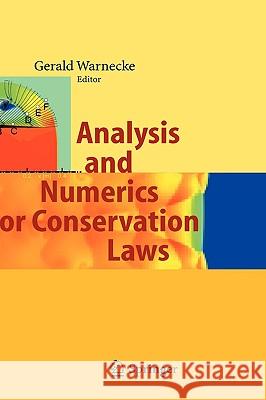Analysis and Numerics for Conservation Laws » książka
Analysis and Numerics for Conservation Laws
ISBN-13: 9783540248347 / Angielski / Twarda / 2005 / 542 str.
Analysis and Numerics for Conservation Laws
ISBN-13: 9783540248347 / Angielski / Twarda / 2005 / 542 str.
(netto: 383,36 VAT: 5%)
Najniższa cena z 30 dni: 385,52
ok. 16-18 dni roboczych.
Darmowa dostawa!
Whatdoasupernovaexplosioninouterspace, ?owaroundanairfoil and knocking in combustion engines have in common? The physical and chemical mechanisms as well as the sizes of these processes are quite di?erent. So are the motivations for studying them scienti?cally. The super- 8 nova is a thermo-nuclear explosion on a scale of 10 cm. Astrophysicists try to understand them in order to get insight into fundamental properties of the universe. In ?ows around airfoils of commercial airliners at the scale of 3 10 cm shock waves occur that in?uence the stability of the wings as well as fuel consumption in ?ight. This requires appropriate design of the shape and structure of airfoils by engineers. Knocking occurs in combustion, a chemical 1 process, and must be avoided since it damages motors. The scale is 10 cm and these processes must be optimized for e?ciency and environmental conside- tions. The common thread is that the underlying ?uid ?ows may at a certain scale of observation be described by basically the same type of hyperbolic s- tems of partial di?erential equations in divergence form, called conservation laws. Astrophysicists, engineers and mathematicians share a common interest in scienti?c progress on theory for these equations and the development of computational methods for solutions of the equations. Due to their wide applicability in modeling of continua, partial di?erential equationsareamajor?eldofresearchinmathematics. Asubstantialportionof mathematical research is related to the analysis and numerical approximation of solutions to such equations. Hyperbolic conservation laws in two or more spacedimensionsstillposeoneofthemainchallengestomodernmathematics











